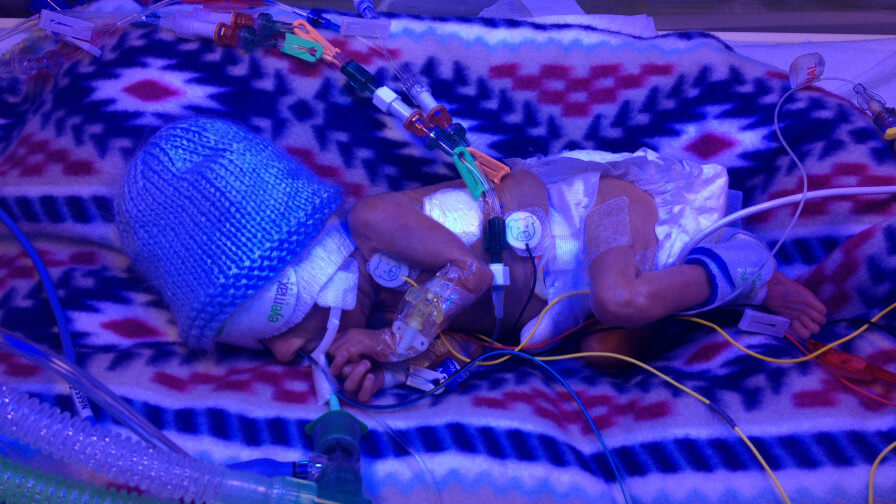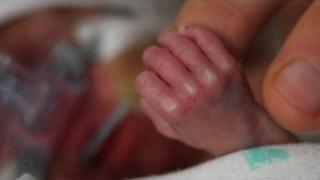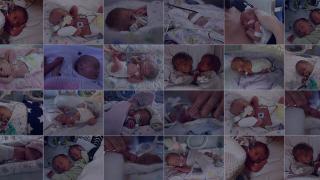What is NEC?
Necrotising enterocolitis (NEC) is a devastating bowel disorder that mainly strikes premature babies. The wall of the intestine is invaded by bacteria, which cause local infection and inflammation that can ultimately destroy the wall of the intestine.
Medical staff must be constantly on the lookout for symptoms of NEC, as premature babies in neonatal units can develop the disease at any time, with little or no warning. Difficulties with diagnosis mean NEC is often identified late, when a baby is already extremely ill. No test can reliably identify babies in the early stages of the disease.

Babies who develop NEC may need emergency surgery to remove damaged parts of their intestines. Up to half of babies who survive the disease develop health problems. Some fail to put on weight properly, they can develop serious infections and liver damage, and nutritional problems can mean they have to be fed through a tube that goes directly into their bloodstream.
Babies can also develop significant hearing, vision and movement problems. NEC remains a threat to premature babies. Improved diagnosis and treatment are urgently needed which is why Action has funded vital research into NEC.
Help us continue our fight for babies and children’s lives by funding more research. Donate today.
Protecting preterm babies from life-threatening illnesses
The causes of necrotising enterocolitis (NEC) and late onset infections in babies are not well understood, but both are thought to be linked to an ‘imbalance’ in the baby’s gut bacteria.
Breast fed babies are less likely to develop these serious complications. The research aims to develop a better understanding of the causes of NEC and infections which could help doctors identify babies most at risk of poor outcomes. And in the longer term, this work could lead to improvements in neonatal care and treatment to promote a healthy gut and protect preterm babies from life-threatening illness.
With funding from Action Medical Research Dr Darren Smith and his team at University of Northumbria in Newcastle investigated how breast milk exerts its protective effects, and in particular, if it helps preterm infants develop a healthy range of gut bacteria.
Jack's story
Jenny bravely tells the story of her son Jack, who was born extremely prematurely at 25 weeks. Weighing just 1lb 15oz, Jack spent the first four and a half months of his life in hospital fighting to survive.
Jack was so tiny and vulnerable when he was born he needed oxygen, help with his breathing and feeding tubes to survive. He suffered a collapsed lung and brain bleeds and contracted the potentially deadly bowel infection necrotising enterocolitis (NEC).
After life-saving surgery in the middle of the night, Jack went on to endure many serious health problems and months in hospital before he was finally allowed home.


